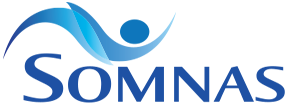SHIFT WORK AND SLEEP
- Imtiaz Ahmad MD, MPH, FCCP
- Updated on: January 23, 2024
- Circadian Rhythm Disorders, Sleep, Sleep & Health, Sleep & Lifestyle, Sleep & Normal Variant, Sleep Tools

Table of Contents
KEY POINTS
Shift work sleep disorder makes it hard to stay alert on the job and to sleep at home.
Shift work sleep disorder makes it difficult to get enough sleep each day.
Fatigue and sleepiness caused by shift work disorder can be related to unhealthy sleep timing, quality and duration.
Sleepiness on the job puts you and your co-workers in danger. Inadequate sleep can increase the rate of accidents and injuries in the workplace.
Shift work can increase your risk of drowsy driving, which can lead to deadly motor vehicle accidents.
Inadequate sleep can impair your work performance and can cause medical problems.
Shift Work Schedules
- Evening shifts
- Night shifts
- Early morning shifts
- Rotating shifts
- Split shifts
- On-call overnight duty
- Long duration work shifts
GENERAL OVERVIEW
TIPS
| SCHEDULE | SLEEP TIME |
|---|---|
| Evening Shift (5 p.m. — 1 a.m.) |
3 a.m. — 11 a.m |
| Night 1 of Transition |
5 a.m. — 1 p.m |
| Night 2 of Transition |
7 a.m. — 3 p.m. |
| Night 3 of Transition |
8 a.m. — 4 p.m. |
| Night Shift (11 p.m. — 7 a.m.) |
9 a.m. — 5 p.m. |
If you work rotating shifts, ask your manager to schedule a natural, “clockwise” rotation. This means that your new shift will have a start time that is later than your last shift.
If possible, plan to take a nap during a break in your shift or before reporting for a night shift. Even a nap of just 20 to 30 minutes can improve your alertness on the job.
Arrange for someone to pick you up after a night shift, or take a bus or cab home. Drowsy driving can put your life and the lives of other drivers at risk.
Try to keep the same schedule on work days and days off. Keeping a routine helps your body know when to be alert and when to sleep.
Plan ahead for a major change in a shift-work schedule. Begin to alter your sleep time a few days in advance. This will make it easier for your body to adjust (see the example to the right).
Avoid exposure to sunlight if you need to sleep during the day. Use blackout curtains in your bedroom and wear sunglasses if you must go outside.
Make sure others in your home are aware of your work schedule. They should keep the home quiet when they know that you need to sleep.
If you are having trouble sleeping during the day, ask your doctor if it might help you to take a sleeping pill or the hormone supplement melatonin.
Exposure to bright light on the job can improve alertness during night shift work.
ACKNOWLEDGEMENT: CONTENT DEVELOPED BY THE AMERICAN ACADEMY OF SLEEP MEDICINE

QUESTIONS ABOUT A SLEEP ISSUE? LET’S TALK.
Imtiaz Ahmad, MD, MPH, FCCP
Dr. Imtiaz Ahmad is a highly qualified physician, Board Certified in Pulmonary and Sleep Medicine. He has been actively serving the community of Lee County, Florida since 2004, with a strong focus on a proactive healthcare approach. Dr. Ahmad has received advanced training from some of the most prestigious institutions, including Harvard University, Cornell University, State University of New York at Brooklyn, and the University of Mississippi. SOMNAS is a medical facility that is committed to improving and maintaining the health of patients with sleep disorders. The expert team at SOMNAS is known for their compassionate and high-quality care. They offer unparalleled treatment and care to patients on the Gulf Coast of Florida, ensuring a better and healthier life for them.
Job Title: Board Certified in Pulmonary Medicine

